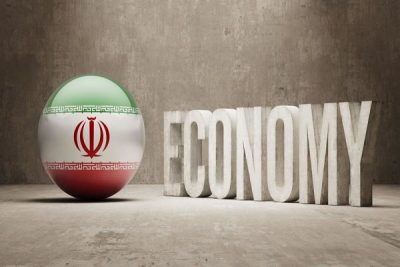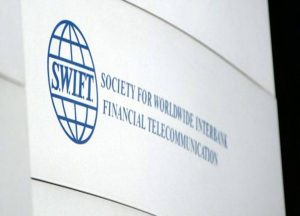Stiff New US Economic Sanctions against Iran Imminent. Implications for the EU. Circumventing Dollar Transactions. Will Brussels Bypass the SWIFT Interbank Financial System

In July 2017, the Countering America’s Adversaries Through Sanctions Act (CAATSA) imposed illegal new sanctions on Iran, Russia and North Korea – legislation passing both houses near unanimously (five no votes alone in both houses), signed into law by Trump.
Last May, Trump withdrew from the JCPOA Iran nuclear deal, flagrantly violating an international treaty with overwhelming world community support.
In August, the Trump regime reimposed nuclear-related sanctions on Iran. Stiffer JCPOA-related sanctions are coming on November 4 – targeting Tehran’s energy sector, petroleum related products, and central bank transactions.
Trump regime policy toward Iran is all about isolating the country politically and economically, notably attempting to block its oil sales, access to hard currencies and foreign investments, along with harsh sanctions and overall financial hardships – part of longstanding US efforts to weaken and topple its government.
Nations continuing normal trade relations with Iran face possible US sanctions, especially ones purchasing its oil.
How tough Trump regime hardliners intend being on Tehran is uncertain. In late October, the Wall Street Journal said the following:
“(D)ays before imposing sanctions aimed at the heart of Iran’s economy,” Trump hardliners are undecided on “(h)ow hard to push European allies to cut off the country from the global banking system,” adding:
“Treasury Secretary Steven Mnuchin signaled that the US may not force Belgium-based financial-messaging service Swift to disconnect Iranian banks from the global banking network.”
“The secretary has told foreign governments the US could take a less-confrontational approach, according to people who have been briefed on the matter by government officials.”
US officials disagree on how tough to be on Iran. John Bolton urges unrelenting harshness. Mnuchin said
“(o)ur intent is to make sure that financial institutions do not process sanctioned transactions,” adding:
“I will use all the tools in my power to make sure that sanctioned transactions do not occur.”
Brussels may bypass the Society for Worldwide Interbank Financial Telecommunication (SWIFT) system, creating an alternative way for Iranian financial transactions to continue unobstructed with EU countries.
The EU reportedly is creating a “special purpose (financial transactions) vehicle (SPV) for European companies to circumvent SWIFT in dealings with Iran – its purpose to bypass US sanctions.
A French Foreign Ministry spokeswoman statement said the following:
The SPV “aims to create an economic sovereignty tool for the European Union beyond this one case. It is therefore a long-term plan that will protect European companies in the future from the effect of illegal extraterritorial sanctions.”
Earlier, a joint statement by EU foreign policy chief Federica Mogherini together with UK, French and German foreign ministers said “effective financial channels” with Iran remain open despite US reimposition of sanctions, adding:
“This is why the European Union’s updated (1996) Blocking Statute will enter into force on 7 August to protect EU companies doing legitimate business with Iran from the impact of US extra-territorial sanctions.”
“The remaining parties to the JCPOA have committed to work on, inter alia, the preservation and maintenance of effective financial channels with Iran, and the continuation of Iran’s export of oil and gas.”
The updated EU Blocking Statute prohibits European businesses from complying with US sanctions on Iran, letting them recover damages from Trump regime imposed penalties.
A separate European Commission statement said “lifting of nuclear-related sanctions is an essential part of the” JCPOA.
How Brussels and EU companies intend to act following imposition of tough new US sanctions on Iran in days remains to be seen.
Never before used, the EU Blocking Statute will be hard to enforce, especially when faced with strong US pressure to comply with its anti-Iran agenda.
All 28 member states must be willing to oppose US policy on Iran. Companies fearing loss of access to the US market may be unwilling to oppose its will.
EU guarantees without enforceable policies backing them are meaningless. Europe most often is subservient to US interests even when harming its own.
US legislation calls for cutting off companies from American banks and dollar processing transactions for not observing Washington’s sanctions on targeted nations.
How things unfold ahead is unknown. According to the New Delhi Economic Times broadsheet,
“India and the US have broadly agreed on a waiver. India will cut imports by a third, which is a significant cut.”
The US waiver permits Indian purchases of 2.5 million tons of Iranian oil monthly until March 2019, renewal likely at the time.
One country granted a waiver likely assures others seeking the same thing. Reportedly, South Korea seeks a US waiver, wanting “maximum flexibility” to buy Iranian oil.
According to energy and commodities information firm Platts, Japan seeks a US exemption to buy Iranian oil, calling its availability a top priority.

Source: Fortune
Platts also said China’s Sinopec, the world’s largest oil refiner, Iran’s largest oil purchaser, is discussing “special arrangements” to continue buying Iranian oil after November 4 US sanctions are imposed.
Its daily purchases range from 500,000 to 800,000 barrels. Its refinery operations are configured to process Iranian rich aromatics content crude. It has longterm contractual arrangements with Tehran for buying its oil.
Beijing pledged to continue Islamic Republic imports. Sinopec and China National Petroleum Corporation (CNPC) invested billions of dollars in Iranian Yadavaran and North Azadegan oil fields, reportedly intending participation in further developing them.
After France’s Total stopped buying Iranian energy last August, CNPC said it may take over its stake in the country’s South Pars gas field.
On October 30, Oil Price.com said
“the Trump administration is having second thoughts about how hard to press the Islamic Republic” – including on oil exports and ability to process financial transactions unobstructed, adding:
“Europe is resisting the US ‘maximum pressure’ campaign. The EU is forbidding European companies from complying with US sanctions, although the measure is mostly toothless.”
Trump officials “are at odds over how far to go.” Unacceptable US political and economic policies encourage nations to circumvent dollar transactions.
In mid-October, OilPrice.com said Iran has ways around Trump regime sanctions, including by having “private local entities buy (its) crude and then resell it to foreign traders.”
Russia and Turkey reportedly agreed with Tehran to circumvent US sanctions by transporting Iranian crude to Russian Caspian Sea refineries for sale in world markets as Russian oil, the Islamic Republic to be reimbursed for the sales.
New US sanctions on Iran take effect on November 4. What follows is uncertain.
*
Note to readers: please click the share buttons above. Forward this article to your email lists. Crosspost on your blog site, internet forums. etc.
Award-winning author Stephen Lendman lives in Chicago. He can be reached at [email protected]. He is a Research Associate of the Centre for Research on Globalization (CRG)
His new book as editor and contributor is titled “Flashpoint in Ukraine: US Drive for Hegemony Risks WW III.”
http://www.claritypress.com/LendmanIII.html
Visit his blog site at sjlendman.blogspot.com.


